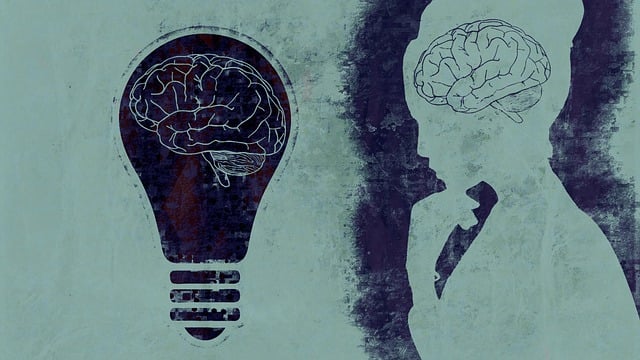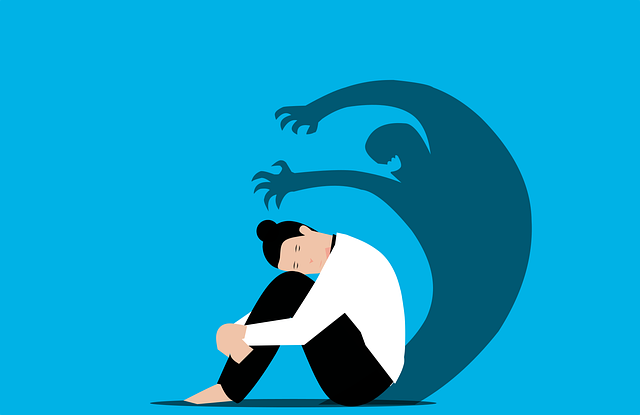Mental health challenges, driven by modern work demands like excessive workload and poor work-life balance, significantly impact employees' productivity and well-being. To address these Golden Workplace Issues and Job Stress Therapy, organizations should implement supportive strategies such as encouraging self-care, risk management plans for mental health professionals, and open discussions through community outreach. Coaching programs focused on stress management, integrating CBT and mindfulness practices, can effectively manage anxiety, depression, and burnout. Cultural sensitivity, public awareness campaigns, and active listening enhance the success of these initiatives, leading to improved job satisfaction, productivity, and mental wellness within organizations.
Mental wellness coaching programs are gaining prominence as essential tools to address common mental health challenges in the workplace, often referred to as Golden Workplace Issues. This article explores strategies for developing effective coaching programs focused on stress management, integrating evidence-based therapies, and measuring success. By understanding these key components, organizations can empower employees with valuable coping mechanisms to navigate job stress, fostering a healthier and more productive work environment.
- Understanding Common Mental Health Challenges in the Workplace
- Designing Effective Coaching Programs for Stress Management
- Incorporating Evidence-Based Therapies into Coaching Practice
- Measuring Success and Promoting Employee Well-being Post-Program
Understanding Common Mental Health Challenges in the Workplace

Mental health challenges are prevalent in modern workplaces, affecting employees’ productivity and overall well-being. The demands of today’s job market, coupled with increased pressure to perform, have led to a rise in issues such as anxiety, depression, and burnout. Understanding these common mental health challenges is crucial for creating supportive environments that foster employee resilience. Many professionals struggle with balancing demanding careers while managing their personal lives, leading to a pressing need for effective strategies to enhance mental wellness.
Golden Workplace Issues like job stress and lack of support can significantly impact employees’ mental health. Implementing self-care routine development programs encourages individuals to prioritize their well-being. Additionally, risk management planning for mental health professionals is essential to ensure they can provide adequate care while managing their own mental health. Some organizations also benefit from community outreach program implementations to create a culture that openly discusses and addresses these issues, promoting better mental health practices in the workplace.
Designing Effective Coaching Programs for Stress Management

In designing effective coaching programs for stress management, it’s crucial to recognize that mental wellness is a cornerstone of overall well-being. Programs should be tailored to address the Golden Workplace Issues and Job Stress Therapy, encompassing factors like excessive workload, poor work-life balance, and high-pressure environments. A comprehensive approach involves integrating techniques from various therapeutic modalities, such as cognitive-behavioural therapy (CBT) elements for thought pattern modification and mindfulness practices for present-moment awareness.
The development of these programs should also consider the broader context of depression prevention and self-esteem improvement. By fostering a supportive work environment that prioritizes mental health, organizations can contribute to public awareness campaigns development around stress management. Coaching sessions can equip employees with practical tools to manage stress effectively, enhancing their resilience and overall job satisfaction.
Incorporating Evidence-Based Therapies into Coaching Practice

Incorporating evidence-based therapies into mental wellness coaching practices is a strategic move to address prevalent workplace issues and job stress. Therapies like Cognitive Behavioral Therapy (CBT) have shown remarkable effectiveness in managing anxiety, depression, and other mental health challenges commonly faced by employees. By integrating these proven techniques, coaches can offer clients powerful tools to navigate the demands of modern work environments. This approach not only benefits individual well-being but also contributes to enhanced job satisfaction and productivity within organizations.
Cultural sensitivity in mental healthcare practice plays a pivotal role here. Coaches must be adept at tailoring interventions to cater to diverse client backgrounds, ensuring that therapies are inclusive and relevant. Public awareness campaigns development can further educate both employers and employees about the importance of mental wellness, fostering an environment conducive to open discussions and seeking professional help when needed. Empathy building strategies, such as active listening and reflection, allow coaches to establish strong therapeutic alliances, making it easier for clients to embrace evidence-based practices and experience significant improvements in their mental health and overall job satisfaction.
Measuring Success and Promoting Employee Well-being Post-Program

Measuring success and promoting employee well-being post-program are crucial components of mental wellness coaching initiatives. Organizations should implement robust evaluation methods to assess the impact of these programs, focusing on both quantitative and qualitative data. Pre- and post-program surveys can gauge improvements in stress levels, job satisfaction, and overall mental health. Additionally, tracking key performance indicators (KPIs) related to productivity and absenteeism can provide valuable insights into the program’s effectiveness.
Encouraging open dialogue and providing ongoing support post-program is essential for sustaining positive outcomes. Community outreach programs that offer peer mentorship, workshops on positive thinking, and accessible therapy options can help employees manage Golden Workplace Issues and Job Stress Therapy effectively. Such initiatives not only prevent depression but also foster a culture of mental wellness within the organization, ensuring long-term well-being.
Mental wellness coaching programs are a powerful tool for addressing the golden workplace issues of stress and anxiety, which can significantly impact employee productivity and overall job satisfaction. By designing effective programs that incorporate evidence-based therapies, organizations can foster a culture of mental well-being. Measuring success through post-program assessments ensures continuous improvement, enabling employees to thrive in their roles free from the burden of work-related stress. This holistic approach not only benefits individuals but also contributes to a thriving and resilient organizational culture.














